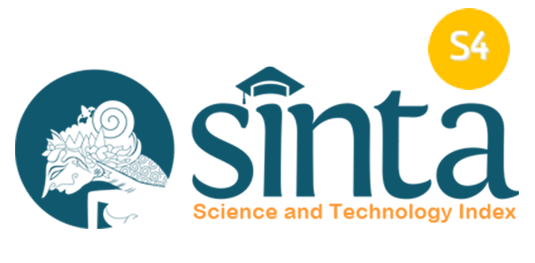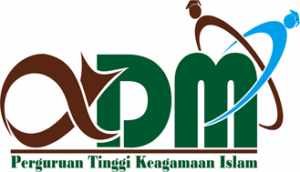A meta-analysis: the effect of the means-ends analysis model on student learning outcomes
Abstract
ABSTRACT
This study aims to determine the effect of the model Means-Ends Analysis on student learning outcomes (SD, SMP, SMA) and subjects (Mathematics, Social Sciences, Science). The data from this research is collected through indexing databases such as Google Scholar,Sintaand the Garuda Portal. From search results with keywords means-ends analysisand learning outcomes from 2013 to 2020 found 45 articles that met the research requirements. The results of the search for 45 data will be filtered to look for the values of N, Fcount, tcount, and rcount. The research method uses Meta-Analysis with a learning model menas-ends analysis on student learning outcomes. The results showed thatobtained summary effect value of 0.66 or 66%, including the strong category in influencing the improvement of student learning outcomes. The results of the moderator variable data analysis show that at the SD level it has an influence of 81% which indicates that the influence is very strong. Meanwhile, at the junior and senior high school levels, they have the same strong influence, namely, 64% and 66%. This shows that the Means-Ends Analysis method is suitable for all levels. Then for the results of the classification data analysis subjects obtained the strongest influence, namely social studies subjects with an effect of 75%. Meanwhile, mathematics has a strong effect of 68% and science has a moderate effect of 53%.Keywords
Full Text:
PDFReferences
Ariyanti, Devi. 2019. "The Effect of the Application of the Means-Ends Analysis Learning Model on the Mathematics Critical Thinking Ability of Class VIII Junior High School 1 Rao Students." Journal for Research in Mathematics Learning 2 (2): 111–17.
Diputra, Komang Sujendra. 2020. "The Effect of Concrete Media Assisted Brain Based Learning Learning Model on Mathematics Problem Solving Ability of Class IV Elementary Students." Thinking Skills and Creativity Journal 3 (1): 8–14.
Efuansyah, and Reny Wahyuni. 2019. "OPTIMIZATION OF MATHEMATICAL PROBLEM SOLVING ABILITY THROUGH THE MEANS-ENDS ANALYSIS MODEL IN CLASS VIII." Journal of Mathematics Science and Education 1 (2): 17–27.
Hartini, Tri Isti, and May Lianti. 2015. "The Effect of the Application of the Means Ends Analysis (MEA) Learning Model on Physics Learning Outcomes." Journal of Physics and Physics Education 1 (1): 20–22.
Harto, Kt. Teddi, AA Gd Agung, and I Md. Image of Authority. 2014. "THE INFLUENCE OF MEANS-ENDS ANALYSIS (MEA) LEARNING MODEL WITH LKS ASSISTED GROUP LEARNING SETTINGS ON THE LEARNING OUTCOMES OF CLASS IV STUDENTS IN SD DESA BEBETIN." E-Journal of MIMBAR PGSD Ganesha University of Education 2 (1).
Hernaeny, Ul, Ade Afina, and Diah Oga Nusantari. 2019. "The Influence of the Means Ends Analysis (MEA) Learning Model on the Mathematical Critical Thinking Ability." Journal of Mathematics Education Studies 2682 (1): 127–34.
Intan, Putu, Sintya Dewi, I Gusti Agung, and Oka Negara. 2020. "Magic Box Media Assisted Rotating Trio Exchange (RTE) Learning Model Toward Social Science Competencies of the Fourth Grade Elementary School." Elementary School Scientific Journal 4 (3): 324–32.
Jacob, Frensca A, and H Tuaputty. 2019. "DIFFERENCES OF STUDENTS LEARNING OUTCOMES CLASS VII STATE SMP 9 AMBON USING LAPS-HEURISTIC LEARNING MODELS AND MEANDS-ENDS ANALYSIS LEARNING MODELS INTEGRATED WITH THE ECOSYSTEM CONCEPT MOVIE MEDIA." Biopendix 5 (2): 96–103.
Juanda, M, R Johar, and M Ikhsan. 2014. "Improving Junior High School Students' Problem Solving and Mathematical Communication Ability through Means-Ends Analysis (MeA) Learning Model." Kreano's Journal 5 (2): 105–13.
Mulasari, Made Rika, IGA Ayu Wulandari, and Made Putra. 2020. "Learning Model Means Ends Analysis of Primary Student Mathematics Learning Outcomes." Journal of Pedagogy and Learning 3 (3): 358–66.
Nurmalasari, Indah. 2016. "Effectiveness of Realistic Mathematic Education and Means Ends Analysis towards Students' Mathematics Achievement." Journal of Basic Education Innovation 2 (1): 19–26.
Palupi, HR, H. Suyitno, and A. Prabowo. 2016. "THE EFFECTIVENESS OF THE MEANS-ENDS ANALYSIS LEARNING MODEL ON THE PROBLEM SOLVING ABILITY OF QUOTE STUDENTS." Unnes Journal of Mathematics Education 5 (2): 118–23.
Qusairy, Lalu A. Hery, and M. Saipul Watoni. 2017. "USE OF MEANSENDSANALYSIS (MEA) LEARNING MODEL WITH A CONTEXTUAL LEARNING APPROACH." Journal of Elementary Education 1 (1): 135–43.
Sari, Yessy Novita. 2018. "THE INFLUENCE OF THE APPLICATION OF MEANS ENDS ANALYSIS LEARNING MODEL USING VIDEO MEDIA ON STUDENT LEARNING ACTIVITY IN ECONOMIC STUDENTS IN SMA NEGERI 3 PAGAR ALAM." Provit Journal 5 (1): 89–104.
Septa, Dewi, Supriyono, and Vetri Yanti Zainal. 2019. "THE EFFECT OF APPLICATION OF THE MEANS-ENDS ANALYSIS (MEA) LEARNING MODEL ON THE CLASS XI ECONOMIC LEARNING OUTCOMES The Effect of the Application of the Means-Ends Analysis (MEA) Learning Model on the Results." Scientific Journal of Economic Education Students of STKIP PGRI Bandar Lampung, 1–10.
Siboro, Thiur Dianti. 2020. "THE EFFECT OF THE USE OF THE TALKING STICK LEARNING MODEL IN DIVERSITY OF LIFE MATERIALS ON STUDENT LEARNING OUTCOMES IN CLASS VII SMP NEGERI 1 PANOMBEIAN PANEI 2019/2020 ACADEMIC YEAR." Metabio Journal 7 (2): 15–20.
Sunita, Ni Wayan. 2019. "UNDERSTANDING THE CONCEPT OF MATHEMATICS THROUGH THE MEANS-ENDS ANALYSIS (MEA) LEARNING MODEL BY CONTROLLING ADVERSITY QUOTIENT." Proceedings of Senama PGRI 1: 60–70. https://doi.org/10.5281/zenodo.3376439.
Susanti, Apri, Agus Susanta, and Effie Efrida Muclis. 2019. "COMPARISON OF LEARNING OUTCOMES BETWEEN MEANS-ENDS ANALYSIS (MEA) LEARNING MODELS WITH EXPOSITORY LEARNING." Journal of School Mathematics Learning Research 3 (2): 242–50.
Susanti, Vera Dewi. 2018. "THE EFFECTIVENESS OF MEANS ENDS ANALYSIS (MEA) LEARNING MODEL ON THE ACHIEVEMENT OF MATHEMATICS LEARNING ASSESSED FROM SELF-TRUST." Journal of Education UNSIKA 6 (1): 60–72.
Suyitno, Hardi. 2017. "Analysis of Mathematical Communication Ability Based on Student Self-Efficacy in the Mea Learning Model Semarang State University, Indonesia." Unnes Journal of Mathematics Education Research 6 (2): 251–58.
Swandewi, Md, IGA Mahayukti, and IN Sukajaya. 2018. "THE EFFECT OF USE OF GUIDE CARD IN THE PROBLEM BASED LEARNING LEARNING MODEL ON." Journal of Mathematics Education Undikdha IX (1): 2599–2600.
DOI: https://doi.org/10.18860/ijtlm.v5i2.12145
Refbacks
- There are currently no refbacks.
Copyright (c) 2024 Ahmad Sahabudin, Dwi Agustina, Husrawati Zayana, Malik Ibrohim

This work is licensed under a Creative Commons Attribution-NonCommercial-ShareAlike 4.0 International License.
Indexed by :
.png)
.jpg)
.png)

.jpg)


